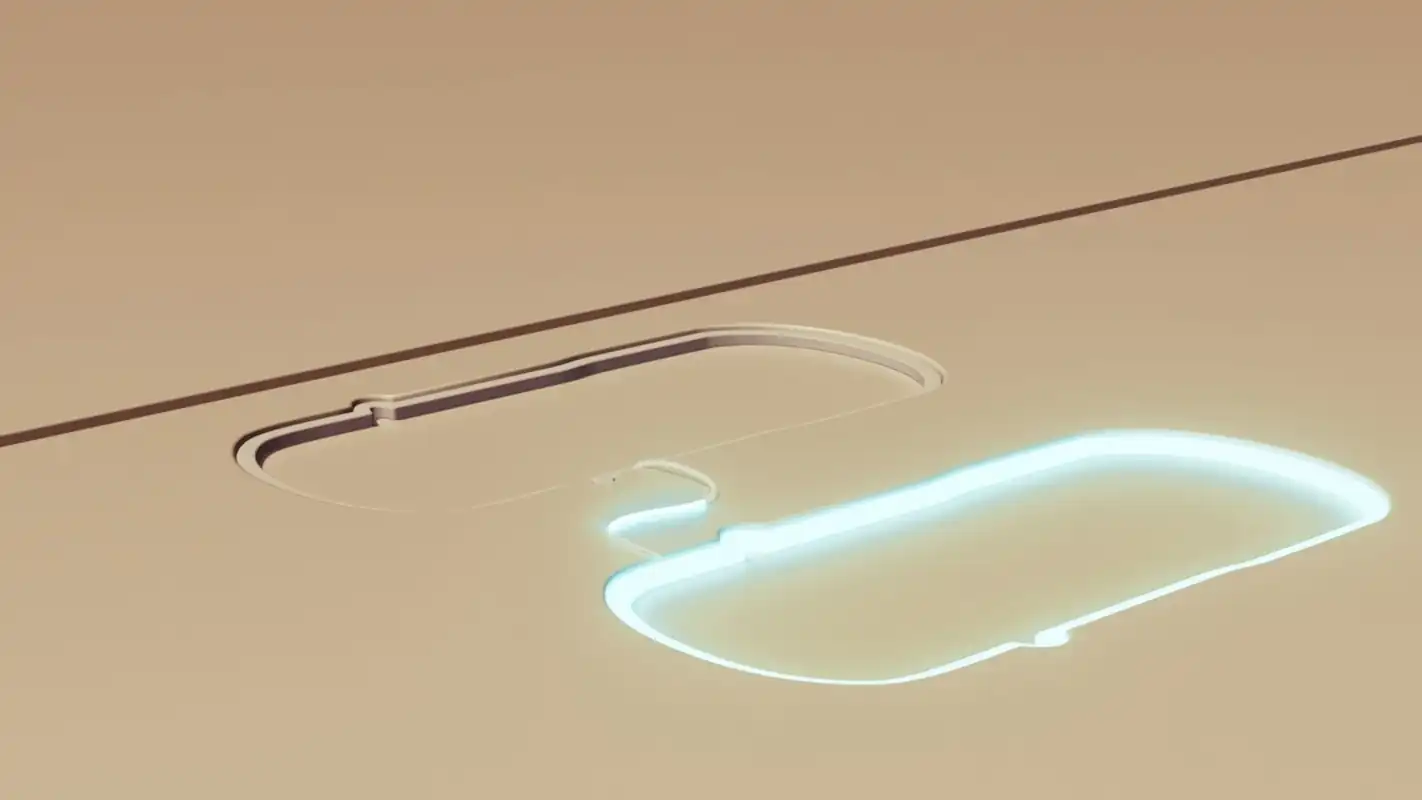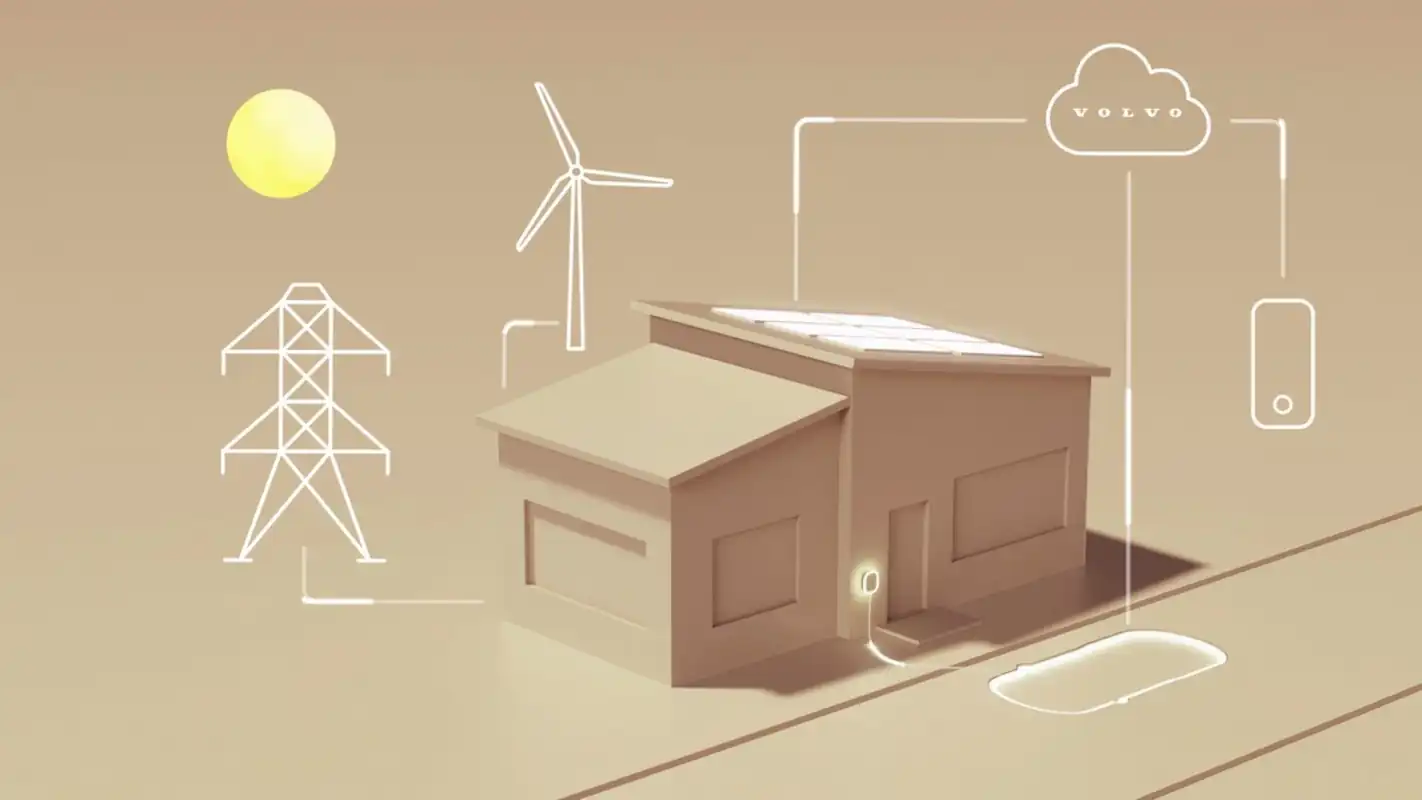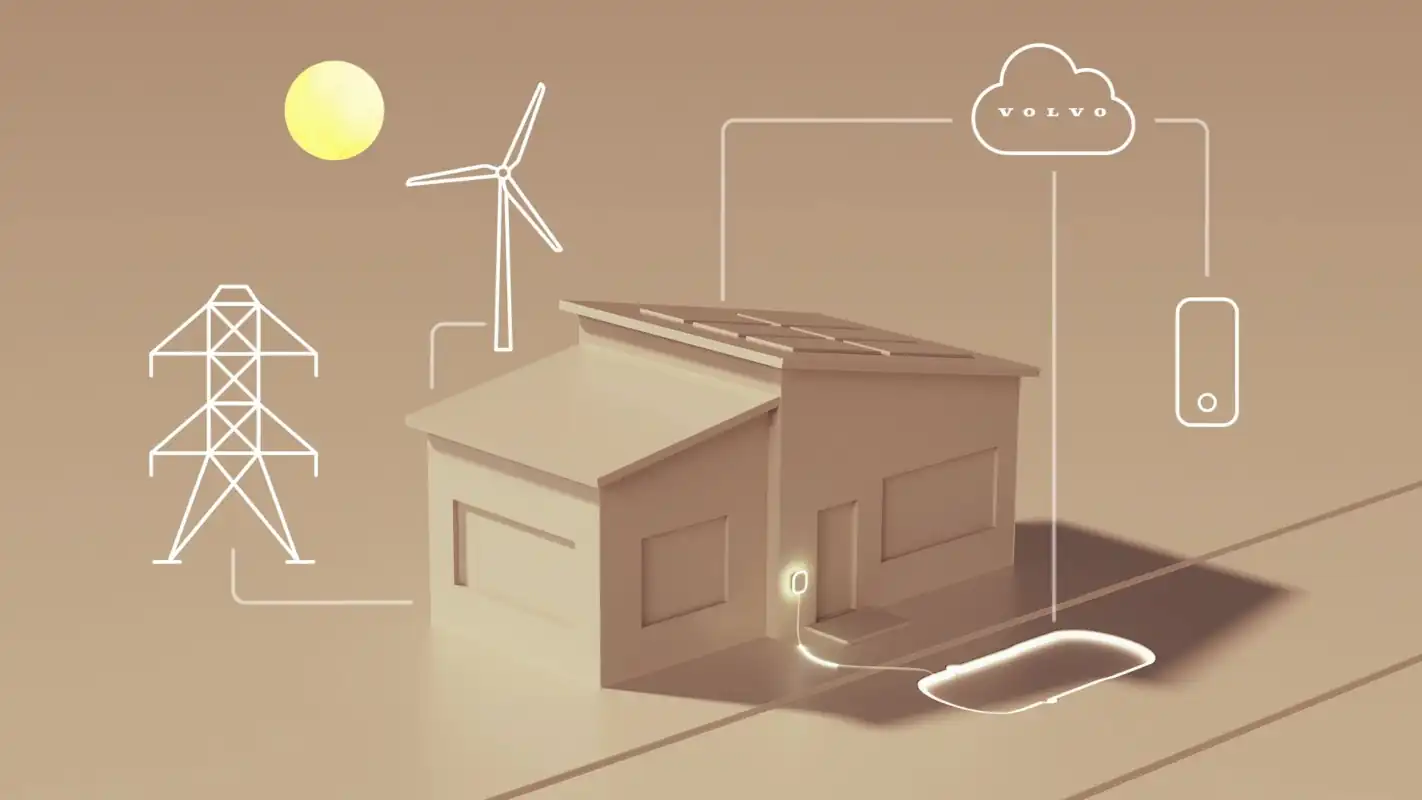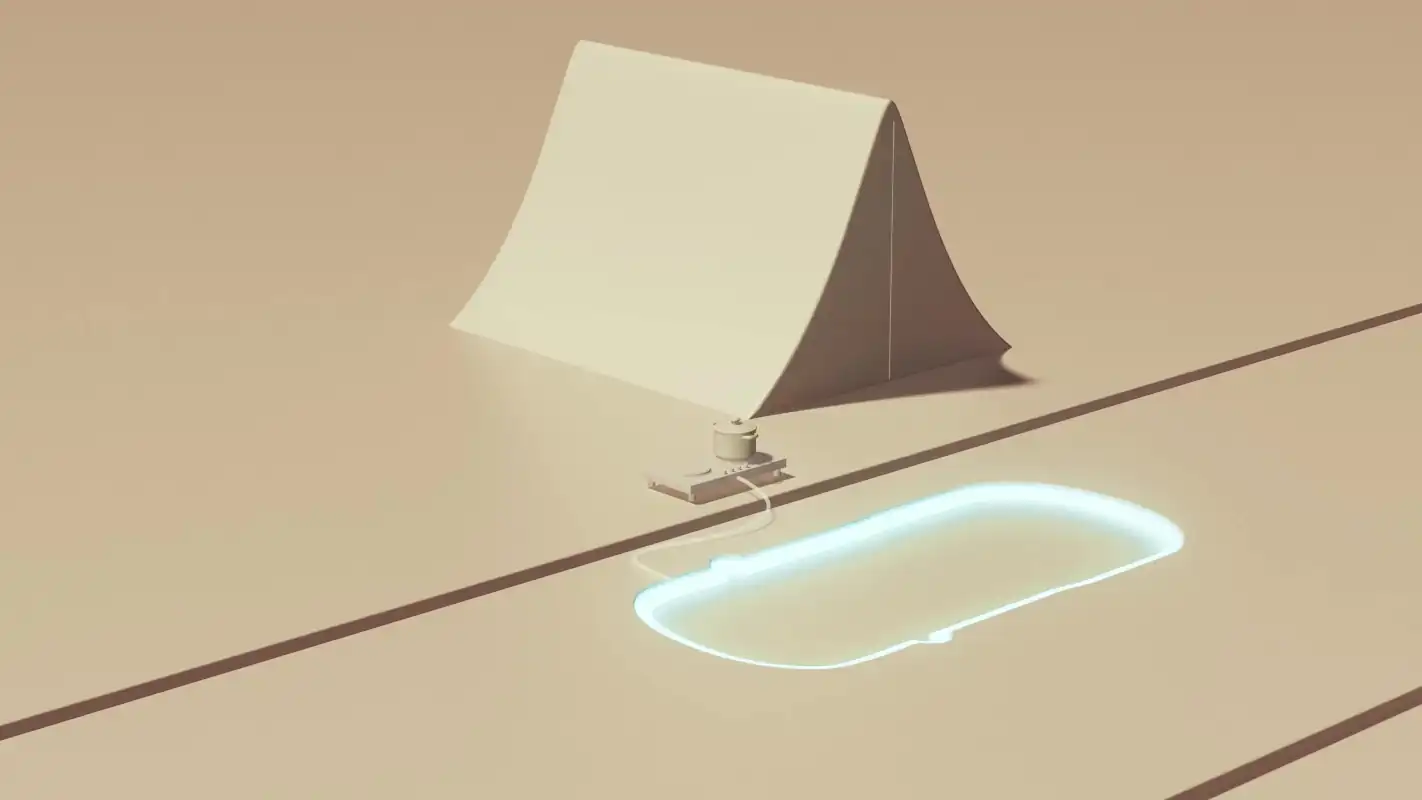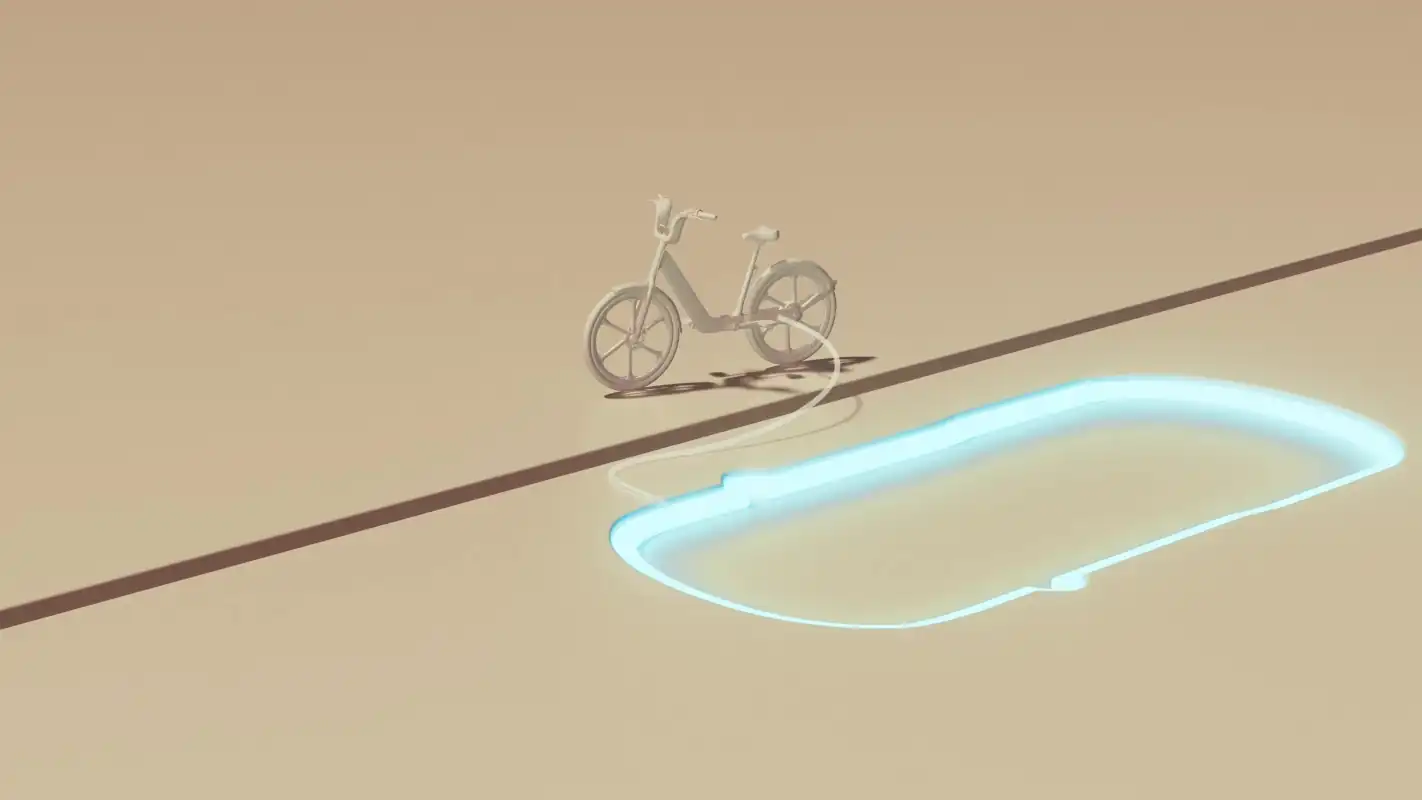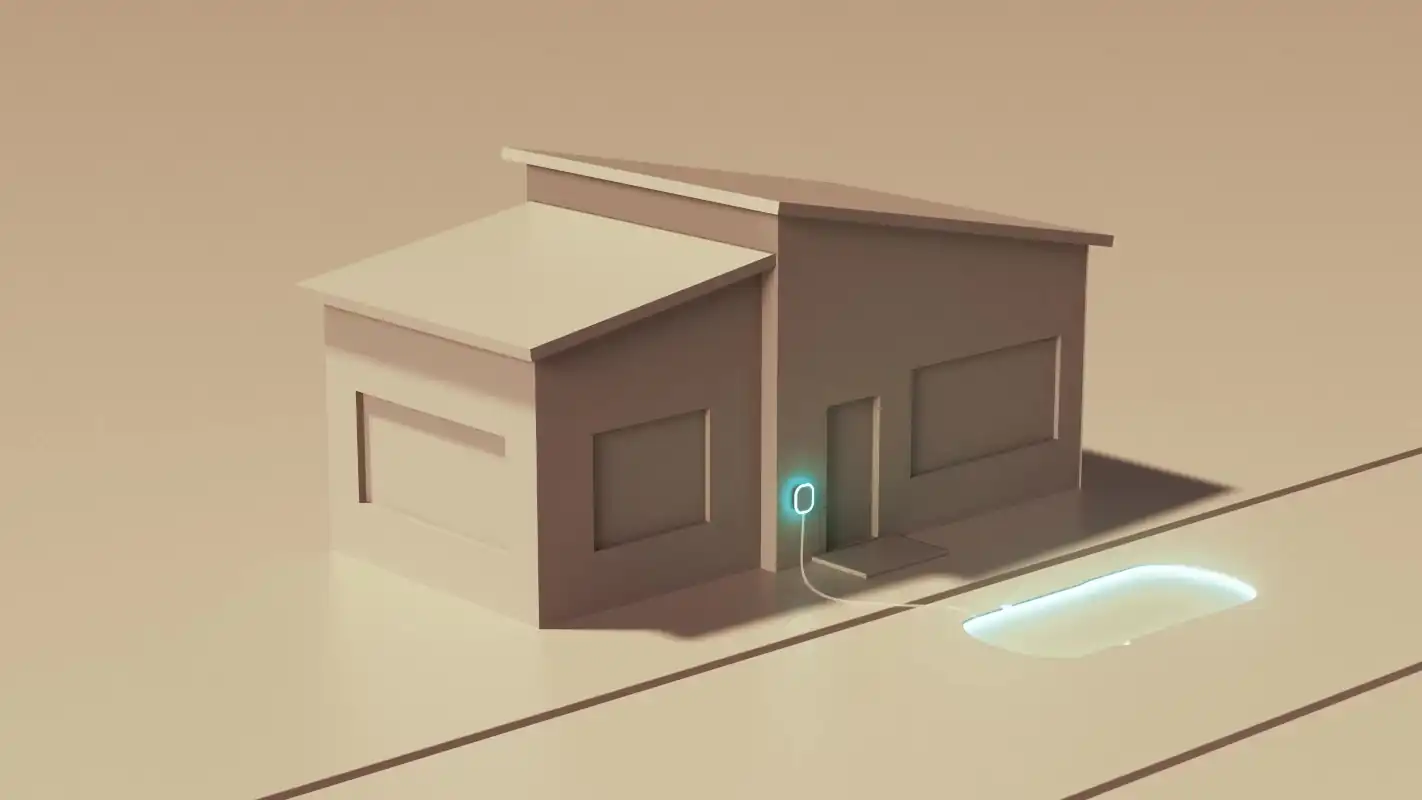
Many of us try to care for the environment by recycling the materials we can, cooking in a way that leads to less food waste or driving an electric car. When it comes to making your energy usage more sustainable, however, it can be hard to know how to increase the share of renewable sources in the electricity that you use.
Because while society is increasing its electrification, with cars playing a key part of the green transition, an increased demand for electricity can lead to a significant strain on the grid.
We believe that with bi-directional charging, electric cars can have the potential to contribute to an easing of this strain while plugged in – together with many other electric cars forming a virtual powerplant. It can also help power your own home energy needs and, when unplugged, become a battery on wheels powering your life on the go – for your cookout, power tools or music system.
The first Volvo car with bi-directional charging
The upcoming, fully electric Volvo EX90, which will be revealed on November 9, will be the first Volvo car to be hardware-ready for bi-directional charging capabilities. Initially becoming available in selected markets, bi-directional charging has the potential to help you make your energy utilisation cheaper, more efficient and sustainable. Paired with smart-charging capabilities coming to the Volvo Cars smartphone app, the Volvo EX90 will allow you to charge your car when demand from the grid and prices are low – usually meaning there are more renewable sources in the energy mix – and save that stored energy to be used later.
Once available, bi-directional charging in the Volvo EX90 could enable you to power your home, as well as other electric devices.
“With the Volvo EX90 you can power your life,” says Head of Electrification Ecosystem Olivier Loedel. “You could use its battery in many ways, from topping up your electric bike when you’re out and about, to hooking up an outdoor cooking appliance for your weekend camping trip. It could even power your house during the expensive peak hours of the day.”
Along with being able to charge appliances and other devices, your car will ultimately have the capability to lend a helping hand and give some of its charge to other compatible Volvos. On the flip side, if you’re about to run out of juice, don’t worry. You can accept the same help from other Volvo cars as well.
Where available, the entire charging process will be automatic and managed entirely by the smart charging functionality in the Volvo Cars app. The underlying algorithm also makes sure that you charge and discharge the battery in a limited way, reducing the risk of avoidable battery degradation.
Beyond the grid
Depending on rules specific to each energy market, bi-directional charging could also allow customers to support the grid in different ways. This could include taking in more energy during times when there’s a surplus of renewable energy, or selling energy back during peak usage hours when there is more demand. If most cars have this functionality in the future, then the grid could be balanced more often. That could increase the overall sustainability of the grid by reducing potential energy waste from renewable sources at times when production outperforms demand.
Imagine this scenario: You come home from work with plenty of energy left in the battery, which has earlier been charged with cheaper and cleaner electricity. During the evening, your car can be plugged in and discharge energy when electricity prices are higher. Since energy is generally cheaper when climate-neutral sources are contributing more to the power supply, this energy transaction can save money on your energy bill and give back cleaner energy to the grid at the same time.
“We believe in a future where our customers can support the grid using this technology, enabling a more efficient and sustainable use of electricity in everyday life,” says Olivier Loedel.
We plan to offer the hardware you need to start using bi-directional charging features, including an advanced wall box and home energy management system. Other accessories such as adapter plugs for appliances and cables for charging other cars will also be available.
The small print
- Future technology and features are described, and capabilities may vary. Features may not be available in all markets and will not be standard in all markets or for all models.
- The bi-directional charging offer will initially be launched in selected markets. We are currently investigating which use cases we will be able to offer in different markets.
- We will equip the Volvo EX90 with the necessary hardware to support the grid, and we are currently assessing in which markets it would be possible to offer this to our customers.

